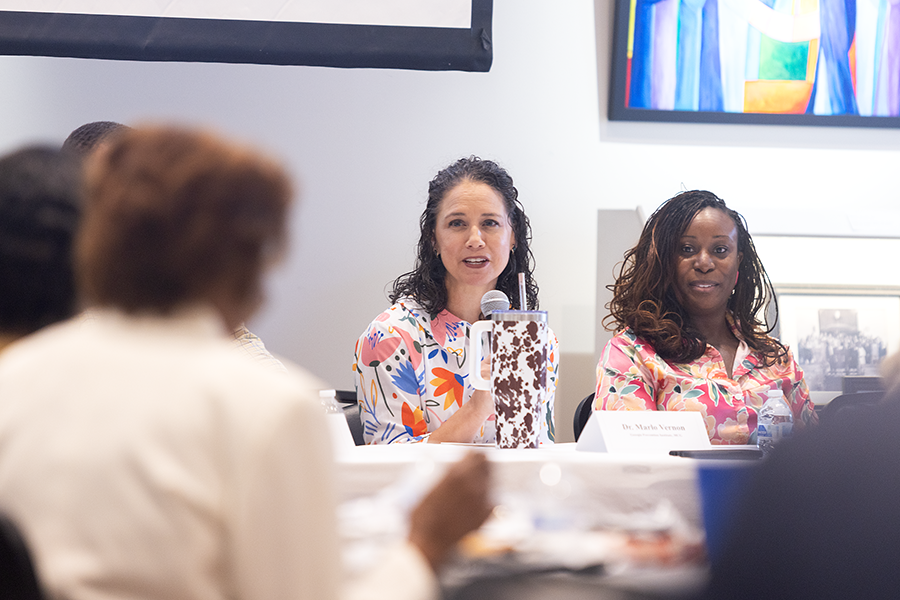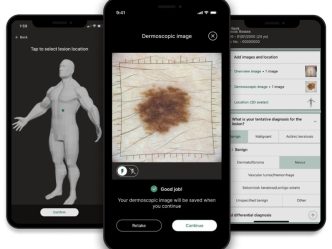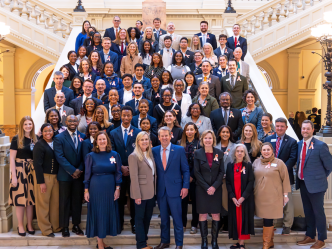Successful community-focused research is a two-way street. It takes input from members of the community to ensure researchers gather relevant and accurate information in an ethical way, but those researchers also need to be able to study the data and put it to good use to benefit the people on whom it was based.
But there are challenges to this research – for both the community and the researchers – with the biggest being building trust.
That was part of the message shared during a recent community forum hosted by the Lucy Craft Laney Museum of Black History in conjunction with Augusta University’s Institutional Review Board as part of a lunch-and-learn series. More than 30 members of the community that surrounds the museum and Health Sciences Campus of AU attended the forum titled, “Barriers to Research Participation: A conversation with the community.”
The forum was a chance for AU researchers to share their research interests, backgrounds and what hurdles they experienced while conducting their specific research, but it was also a chance for members of the community to share their community-based research experiences and any hesitation from community members, as well as ask questions of the panel.
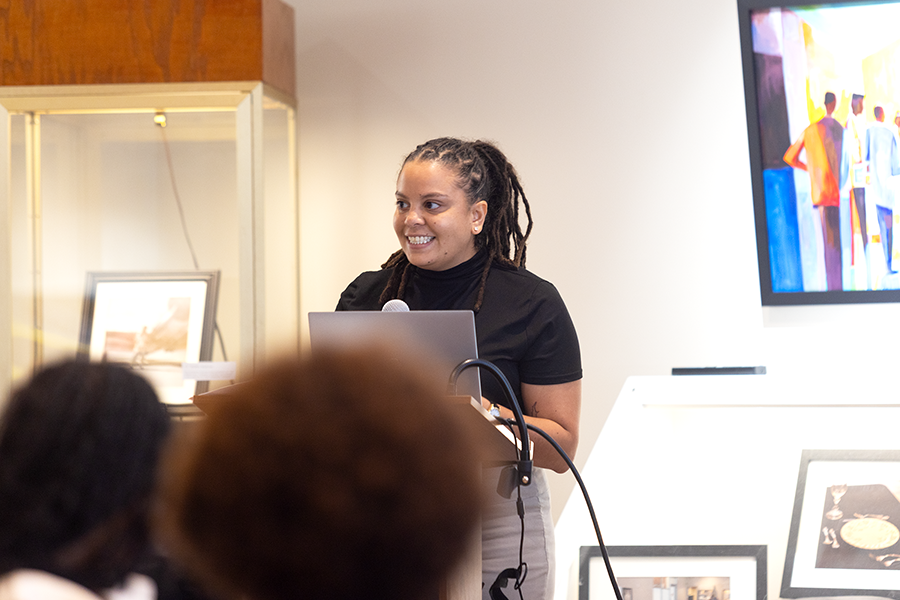
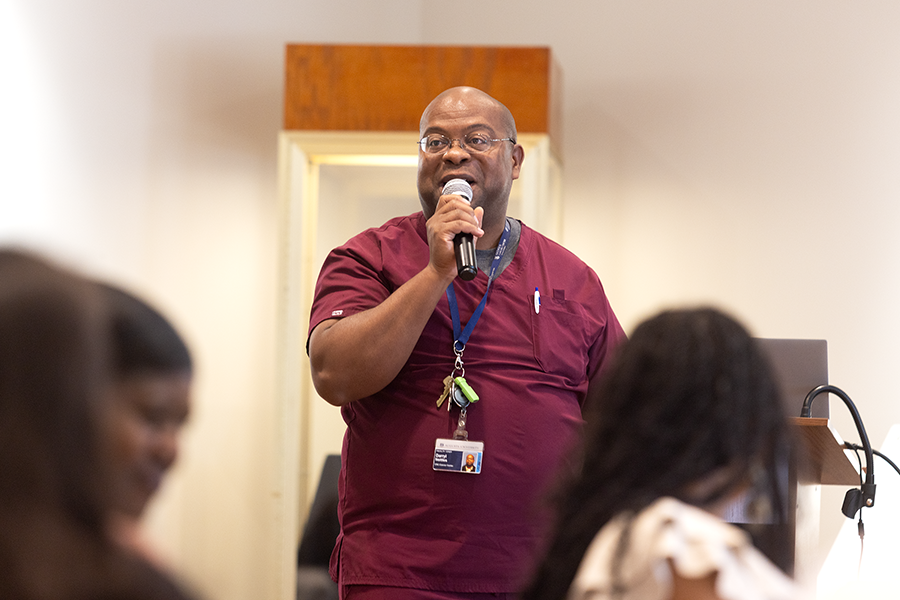
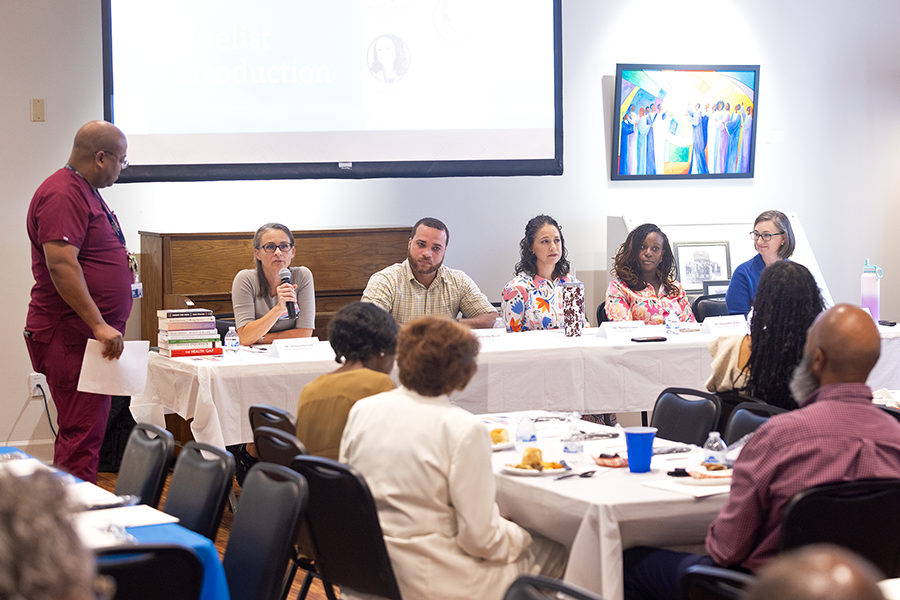
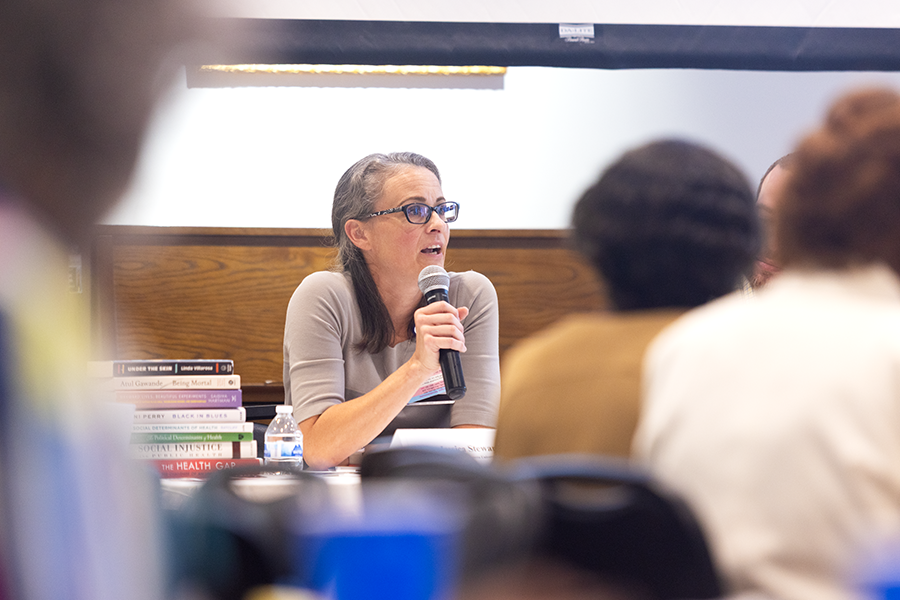
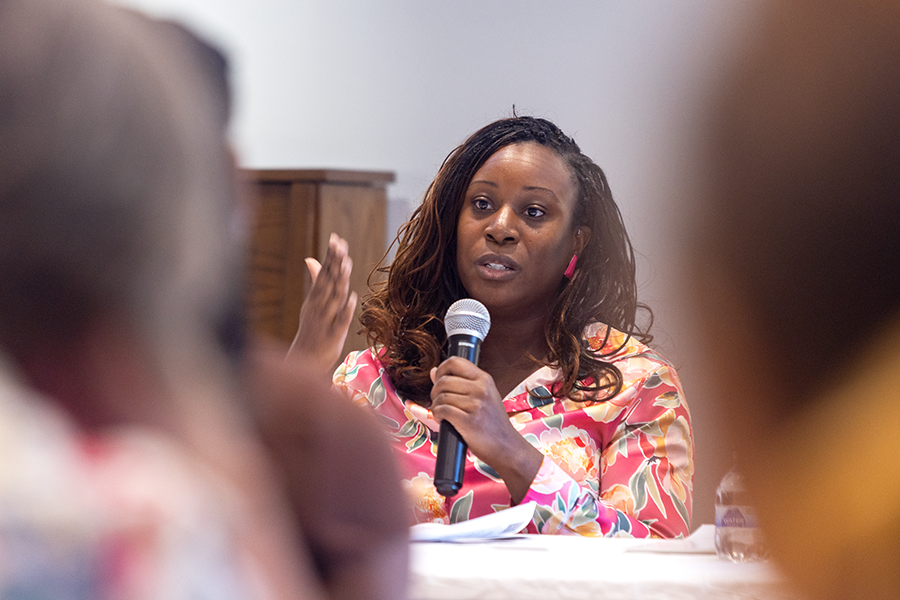
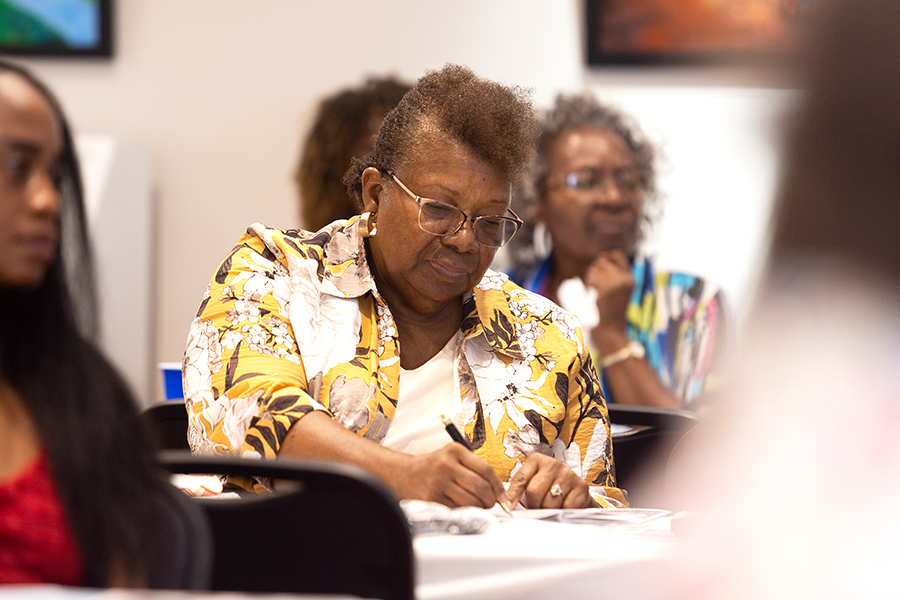
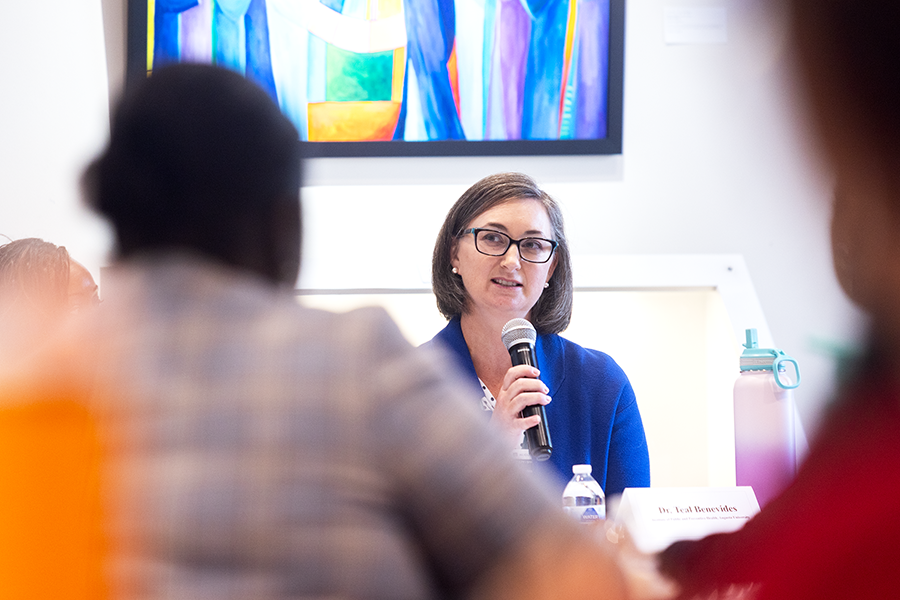
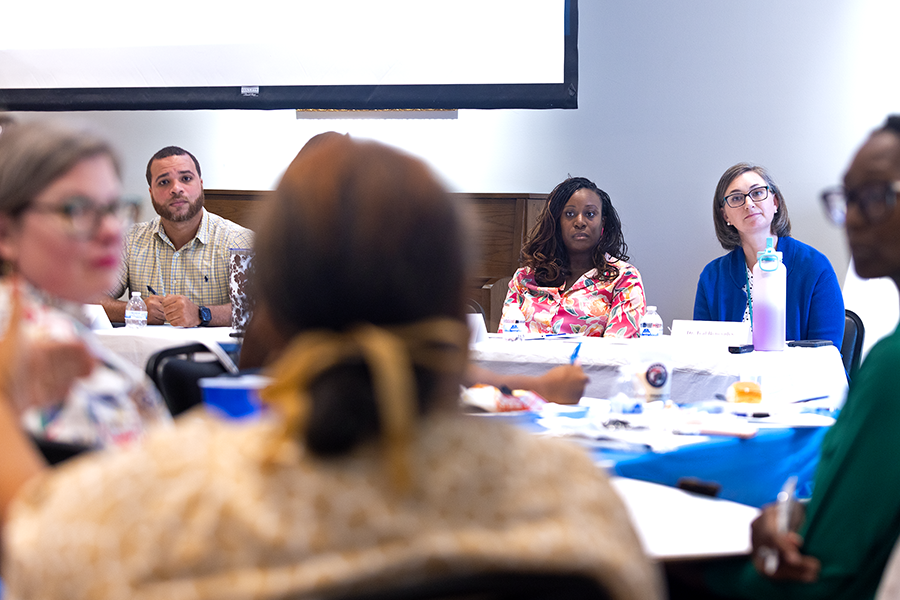
Corey Rogers, executive director of the museum, noted the importance of the museum’s role in facilitating these kinds of conversations and explained why the Lucy Craft Laney Museum was a natural location for the forum to be held.
“While we often think of Lucy Craft Laney as the great educator and the woman who mentored Mary McLeod Bethune, what we fail to bring to the forefront of the conversation is that she was a staunch believer in providing quality health care in her community,” Rogers said. “She gave speeches at Hampton Institute about this, and she helped to facilitate the creation of the Lamar School of Nursing. These types of panels are at the core of what we do here at the Lucy Craft Laney Museum.”
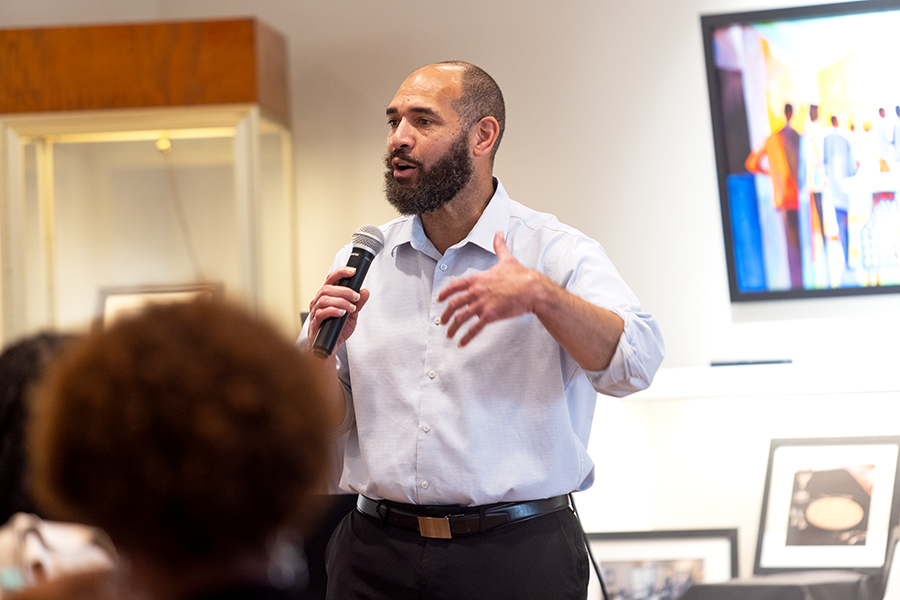
The panel discussion began with Bianca Marsh, IRB training coordinator, introducing what AU’s IRB office does and its important role in protecting those who participate in research.
“The Institutional Review Board is the ethics committee that oversees human subjects research at Augusta University or research that requires participants from our community,” Marsh said. “There was a point in time when human subjects research was not regulated, and a lot of things happened. We recognized that, and that is why we have the IRB. Along with monitoring AU’s human subjects research, we go out into the community and do educational forums like this. Part of our job is not to persuade you or to tell you to do research because it’s your decision. It’s your informed decision whether or not you want to participate. Our job is to make sure that you have the resources and the information available to you to make that informed decision and ensure you are protected if you do decide to participate in research.”
From there, the session was structured as an open dialogue moderated by Darryl Nettles, PhD, from the Georgia Cancer Center. Nettles asked a couple of questions to the panel of researchers, followed by a question or two for the community members. Throughout the dialogue, both sides were encouraged to speak up if they had something to contribute to the question at hand.
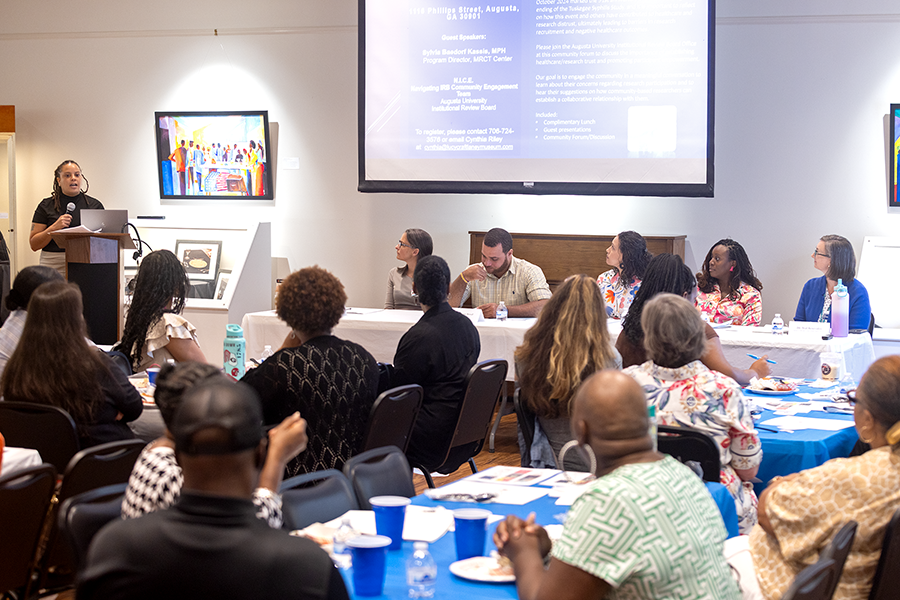
The event featured an expert panel of several AU faculty researchers, including Jessica L. Stewart, PhD, and Teal Benevides, PhD, from AU’s School of Public Health; Samantha Jones, PhD, from the Department of Family and Community Medicine and the Georgia Prevention Institute in the Medical College of Georgia at Augusta University; Malcolm S. Bevel, PhD, with the Georgia Cancer Center; and Marlo Vernon, PhD, who has research ties to SPH, MCG and the Cancer Center. The AU researchers represent a variety of research areas that impact just about every community, particularly around Augusta.
For Stewart, an assistant professor in the Department of Community and Behavioral Health Sciences in SPH, her research focuses around social determinants of health and health disparities. A military veteran, she served in El Salvador through the Peace Corps and has a passion for rural health care. Her work is centered around being at health fairs and helping with either translation services or taking vitals.
Bevel, an assistant professor with the Cancer Prevention Control and Population Health program at the Cancer Center, examines the role of social determinants of health, particularly looking at food deserts and food swamps, on risk factors related to cancer, including obesity, inflammation and allostatic load. His long-term research goal is to promote healthy lifestyle interventions through community gardening geared toward underserved minority populations, especially those impacted by breast, prostate and colorectal cancer.
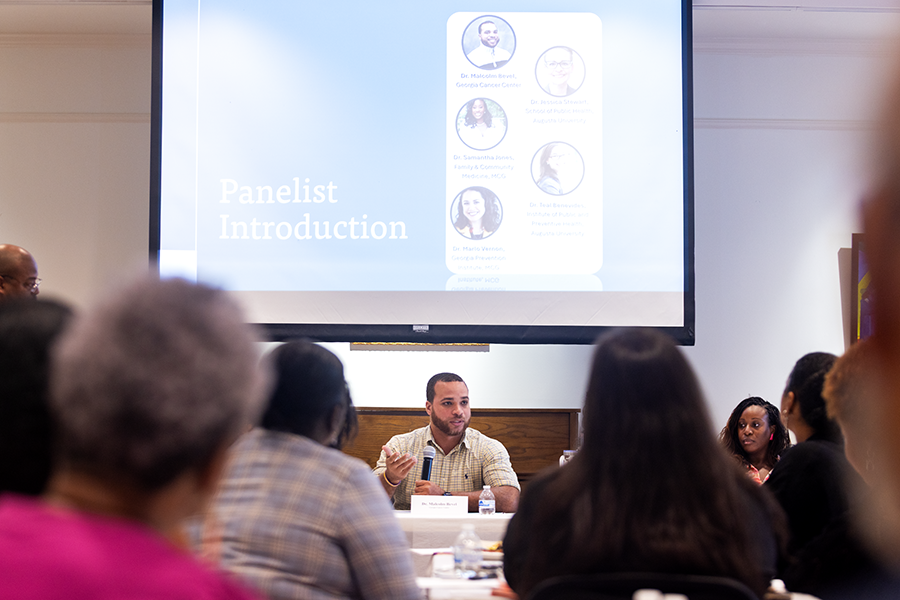
Vernon is an associate professor in the Department of Obstetrics and Gynecology of MCG, the Georgia Prevention Institute and SPH’s Department of Community and Behavioral Health Sciences. Her research is focused on the intergenerational transmission of healthy behaviors and how to prevent chronic diseases. One of her passion projects is based on preventing maternal morbidity and mortality, a problem in the state of Georgia.
A professor in the Department of Community and Behavioral Health Sciences in the School of Public Health, Benevides’ research focuses on health disparities of people with intellectual and developmental disabilities. One of the hallmarks of her research is the fact that she partners with autistic individuals to address a range of priorities that they have identified, including suicide prevention and mental health needs.
For Jones, the event and her research hit particularly close to home as she was born and raised in South Augusta, and her observations from a young age regarding where her grandparents and parents lived their entire lives were driving factors for why she went down the medical research path. An assistant professor in the Department of Family and Community Medicine at MCG, her research focuses on health disparities, particularly cancer disparities and social determinants of health, and how chronic stress, particularly among black women, translates to poor breast cancer outcomes.
Throughout the forum, the researchers offered practical tips to help community members feel more confident about participating in studies. They stressed the importance of asking questions and carefully reviewing consent forms, including looking for the IRB approval stamp before agreeing to take part in research. They also reminded attendees that they should never feel rushed into making a decision, emphasizing they have the right to take their time, seek additional information and make the choice that is best for them.
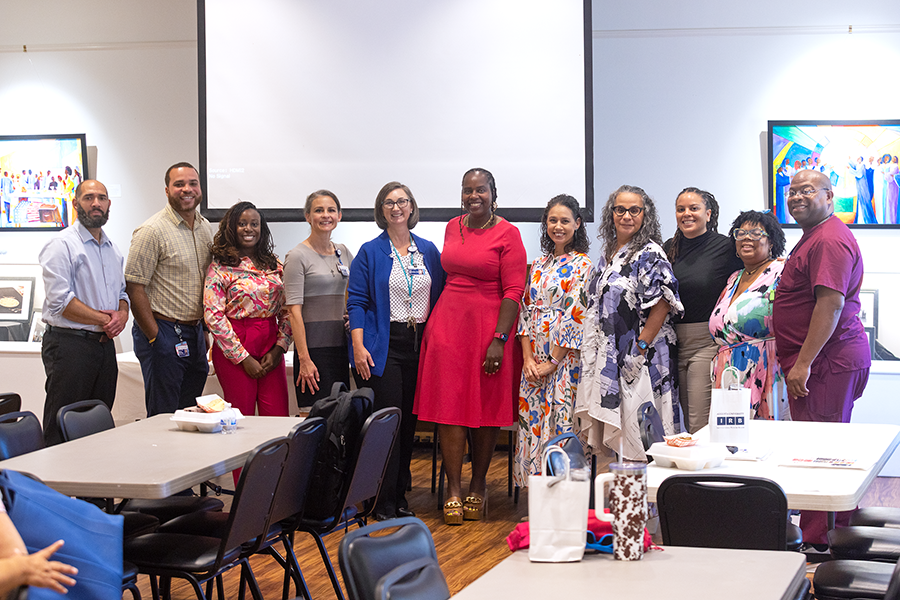
Tiffany Coleman, director of AU’s IRB, asked attendees, “How many of you hear about the research that is being done up the street at Augusta University?”
Only a few hands were raised, underscoring the disconnect that often exists between research institutions and the communities they aim to serve. This moment reinforced the importance of ongoing community outreach and transparent communication.
For their part, community members voiced several concerns that contribute to their apprehension about participating in research, including:
- Mistrust in health care systems
- Concerns about personal data protection
- Lack of dissemination of research results
- Fear of discovering adverse health conditions
- Limited education or understanding of research processes
Despite these concerns, community members expressed a desire to ensure their best interests are central to research efforts and that studies ultimately lead to meaningful improvements in health outcomes.
The community members also offered tangible solutions to increase awareness and participation, including:
- Involving the community early in research design
- Providing incentives like compensation and transportation
- Building pre-existing relationships with the community
- Hosting town halls and open forums
Those insights are invaluable for shaping more inclusive, respectful and effective research practices.
For the AU researchers, forums like this are essential steps in building trust. Beyond sharing their own projects, they listened to community members’ suggestions on how to improve outreach, recruitment and make research more responsive to real needs.
 Augusta University
Augusta University
